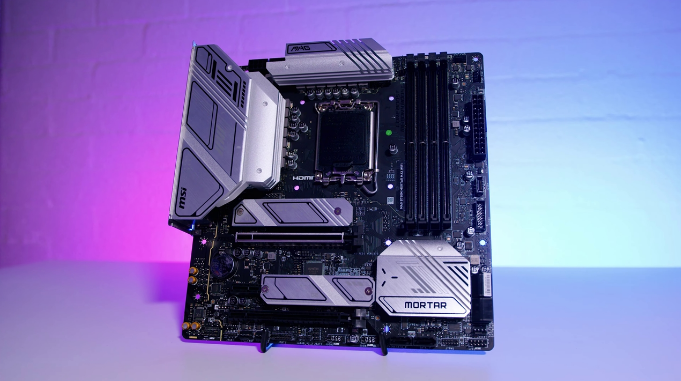Choosing the right motherboard should not really be difficult for anyone, but more often than not, people get confused as to which motherboard they should pick up. For instance, you can get a cheap motherboard for $100, and you can get a motherboard for $1,000. You see, this type of price disparity confuses people, and sure, you do get a lot of goodies if you choose to go for a more expensive motherboard, but in reality, you would be surprised to know just how good a budget motherboard can be.
The main question that people often ask when spending money on a motherboard is whether a motherboard affects the performance of the PC overall. In this article, we are going to figure that out for you so you know that the motherboard you are going to get is not going to create issues for you. Let’s not waste time and have a look.
Contents
How Does a Motherboard Function?
In order to figure out if the motherboard you are buying is going to affect the performance or not, then you first need to understand how the motherboard functions. You can consider the motherboard a hub where you connect your CPU, GPU, RAM, storage, and other devices. It then allows them an uninterrupted stream of communication with each other, so nothing stops working for one reason or another.
Your CPU is the brain that figures out just how fast or slow the flow of information between various components and itself is going to be, and the motherboard helps in ensuring that whatever is flowing is doing so the right way.
So, by this definition, a motherboard should not really affect the performance because all of the performance overhead is handled by other components, with the CPU being the primary one.
Can I Use Expensive Components with Cheap Motherboards?
Now, this is an interesting question that most people go through. If the motherboard is just a hub for all the communication between devices, can I use a cheaper motherboard and pair it with expensive components? For instance, imagine using a $150 motherboard with a CPU that costs $700 and a GPU that costs $1,000 or more.
You would be surprised to know that the answer to your actual question is no; the motherboard will not affect the performance of your PC in any way. A cheap, $150 motherboard paired with high-end components will more or less perform on the same baseline as its high-end counterparts. So, the next time you find yourself looking at the best and most expensive motherboard, you should know that the choice ultimately comes down to your preference.
Although we have established that the motherboard is not going to affect the performance of your components. However, it might limit the performance of certain components. For instance, if you are using the latest generation NVMe PCIe SSD on a motherboard that supports an older standard, then you will not be able to achieve the speeds offered by the latest PCIe generation standards and will be limited to speeds of the older standards.
For instance, the latest generation PCIe 4.0 standard will offer read speeds of up to 7,000 MB/s. However, the PCIe Gen 3 is only capable of offering max speeds of up to 3,500 MB/. So, if you install a Gen 4 SSD on a motherboard that only supports Gen 3, you would only be getting Gen 3 SSD speeds.
Expensive Motherboards Offer Better Stability for Overclockers
Now, if you are looking to get a cheap motherboard, it is all good, but if you wish to use the motherboard just as it is and on stock configuration. For instance, if you are looking to overclock any high-end CPU such as Ryzen 9 5900X, then go for the best motherboard for Ryzen 9 5900X. However, if you are someone who has no interest in overclocking their components, then you should be more than okay with an affordable motherboard.
You see, expensive motherboards tend to have higher power phases that are a lot more stable for overclockers. As compared to the more affordable offerings, you are not getting a lot in terms of overclocking, and some entry-level motherboards don’t support overclocking at all.
Conclusion
It is easy to get confused when picking a motherboard. After all, the market has so many options available for you to buy. However, picking the wrong motherboard can end up ruining the overall experience of your gaming PC.
It is true that a more expensive motherboard does not really influence performance, but honestly, overall, if you want the best experience in terms of overclocking stability, looks, and features, then an expensive motherboard does make sense. But if you are buying it for the sake of getting extra performance, then that is not going to be the case.






